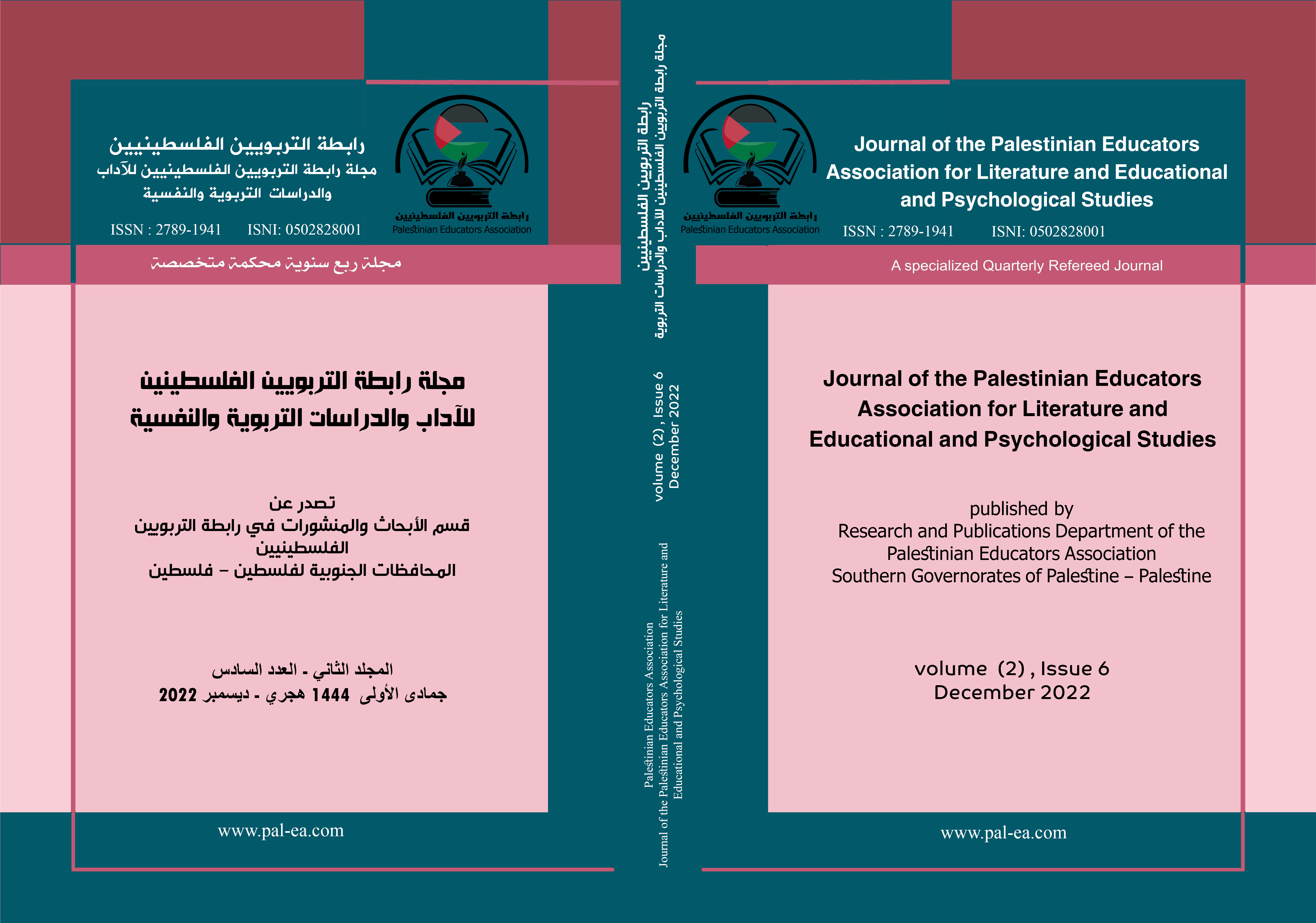The effect of using constructivist theory strategies in teaching science - an applied study on a sample of primary school students
Keywords:
Constructivist theory, learning cycle, Schemann model, cooperative learning, JixoAbstract
The research studies the impact of using constructivist theory strategies in teaching science on students in the primary grades. The study consists of applying a number of these strategies to a sample of students in the fourth, fifth, and sixth grades. The research aims to examine how these strategies improve students' understanding and performance in science. Constructivist theoretical strategies include a set of methods and tools that encourage students to build their scientific concepts based on their previous experiences and critical thinking.The research was carried out by presenting constructivist theoretical strategies in a structured educational context and analyzing the results of their application on students’ performance and understanding of scientific concepts. These strategies can include, for example, the use of interactive models, practical experiments, guided discussions, and other interactive methods that encourage critical thinking and a deep understanding of scientific materials. The study produced results that show the benefits of using these strategies in science education, such as enhancing interaction and active participation of students, Improving their deep understanding of scientific concepts, and enhancing their abilities to think critically and solve problems. The study aims to direct attention towards the use of constructivist theoretical strategies in science education as an effective means of improving the quality of education and students’ understanding of scientific subjects.
Downloads
References
المصادر والمراجع
المراجع العربية
• زيتون . عايش ( 29- يوليو – 2017)النظرية البنائية واستراتيجيات تدريس العلوم
• زيتون، حسن، وکمال، زيتون ( 2003 ). التعلم والتدريس. القاهرة : عالم الکتب
• الموسوي، نجم - النظرية البنائية واستراتيجيات ما وراء المعرفة – ( دار الرضوان للنشر والتوزيع )
• https://w.mta.sa/ استرايجيات تدريس قائمة على النظرية البنائية
• مبادئ النظرية البنائية في التدريس التربويhttps://www.new-educ.com/theories-dapprentissage-le-constructivisme
• https://ar.wikipedia.org/wikifبنائية نظرية تعليمية
• دقماق، ريتا - دورات تعليمية عن النظرية البنائية – بالتعاون مع مركز ابداع المعلم ومديرية التربية والتعليم بيت لحم.
المراجع العربية الإنجليزية
• olive . A (July 29, 2017) Structural theory and strategies for teaching science
• Olive, H, and Olive, K (2003). Learning and teaching. Cairo: The World of Books
• Al-Musawi N - Constructivist Theory and Strategies Beyond Knowledge - (Dar Al-Radwan for Publishing and Distribution)
• https://w.mta.sa/ Teaching strategies based on constructivist theory
Principles of constructivist theory in educational teaching https://www.new-educ.com/theories-dapprentissage-le-constructivisme
• https://ar.wikipedia.org/wikif Constructivist educational theory
• Duqmaq, R. - Educational courses on constructivist theory - in cooperation with the Teacher Creativity Center and the Directorate of Education, Bethlehem.
Downloads
Published
Issue
Section
License
Copyright (c) 2022 وفاء خضر صلاح (مؤلف)

This work is licensed under a Creative Commons Attribution-NonCommercial-ShareAlike 4.0 International License.
The Journal of the Palestinian Educators Association for Literature, Educational and Psychological Studies
E-issn: 2789-1941
Authors retain Copyright
The Journal of the Palestinian Educators Association for Literature, Educational and Psychological Studies allows Authors retain Copyright and grant the journal right of first publication with the work simultaneously licensed under a Creative Commons Attribution (CC-BY) 4.0 License that allows others to share the work with an acknowledgment of the work’s authorship and initial publication in this journal.
Provided they are the owners of the Copyright to their work, authors are able to enter into separate, additional contractual arrangements for the non-exclusive distribution of the journal’s published version of the work (e.g., post it to an institutional repository, in a journal or publish it in a book), with an acknowledgment of its initial publication in this journal.
Authors are permitted and encouraged to post their work online (e.g., in institutional repositories, disciplinary repositories, or on their website) prior to
and during the submission process.










